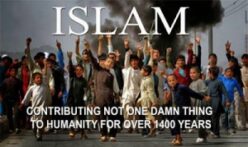
A college professor is teaching the art of writing for a tabletop roleplaying game by using Call of Cthulhu and H.P. Lovecraft as the source.
And this is one of the things wrong with so-called ‘higher education.’ Why does a course like this exist at all? Why aren’t parents, alumni, and the government coming down hard on crap like this? What possible use could this be?
Enter professor T.R. Knight at Taylor University in Upland, Indiana. He is teaching a class called the Tabletop Game Writing Lab. Its specific focus is teaching the art of designing a tabletop roleplaying game, more specifically, Call of Cthulhu.
The course focuses on teaching the fundamentals of writing an adventure module. From the outline of the adventure to designing art for the guide, by the end, students will publish their own story set within the Call of Cthulhu mythos.
Knight is working with members of the creative team at Chaosium to help during the class.
I have nothing against role-playing games. I spent quite a bit of time playing first edition D&D (and others) in high school in the early 70s. We didn’t need a college course to design our own adventures, campaigns, or games.
This doesn’t belong in ANY school curriculum. Not even grade school. These games were invented without any specialized education.
This is why I scoff at those ‘elites’ who brag about their ‘education’ at institutions of ‘higher’ learning.
Education? “You keep using that word. I don’t think it means what you think it means…”
Source: College Course Teaches How to Design a Tabletop Roleplaying Game







